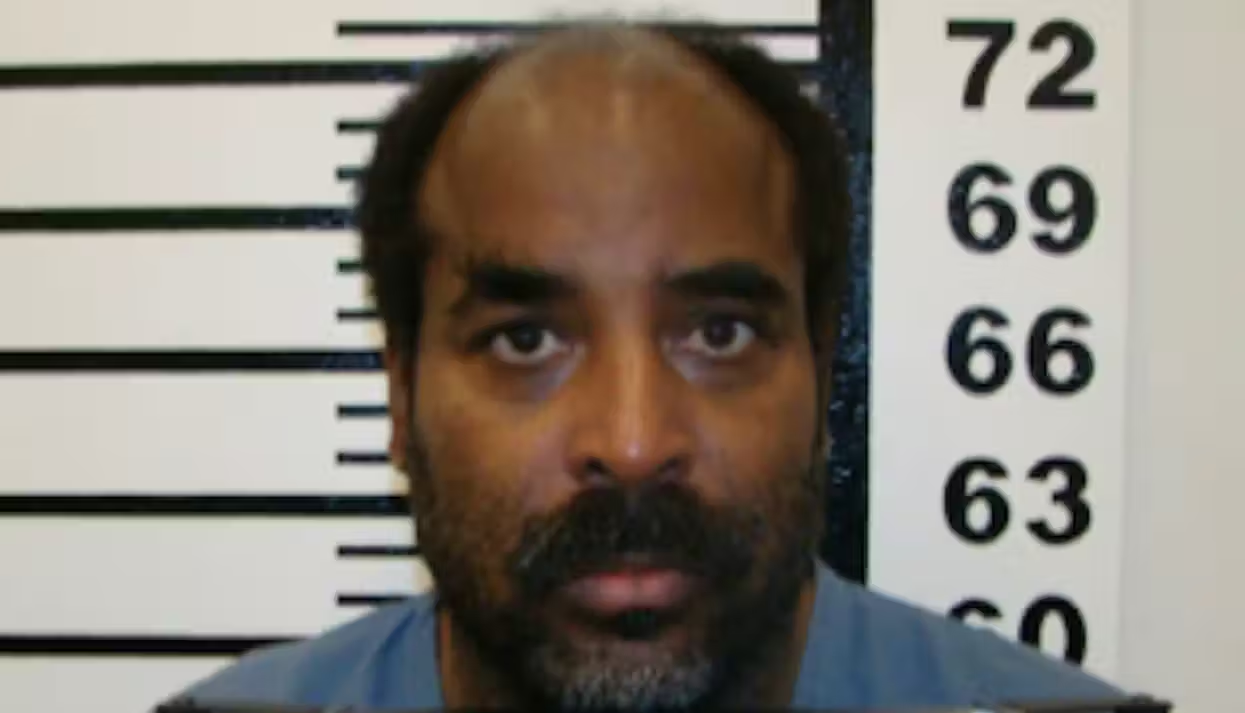
© 2026 Blaze Media LLC. All rights reserved.
Abortion Doc Tells Undercover Mom-to-Be: 'It Is' Safer to Have an Abortion Than to Deliver Full-Term Baby
July 01, 2013
"You know, the bigger the pregnancy, the more risks there are in -- in delivering."
TheBlaze's Carly Hoilman contributed to this report.
Live Action, a pro-life organization, has released another undercover video in its "Inhuman: Undercover in America's Abortion Industry" series. Captured at Southwestern Women’s Options in Albuquerque, New Mexico, the footage shows a counselor and a doctor giving a pregnant woman what pro-lifers believe to be troubling advice surrounding a potential abortion procedure.
The New Undercover Video
In the clip, an unnamed counselor tells a woman who is 27-weeks pregnant what to do in case she feels the pregnancy terminating before she reaches the clinic. Her advice, which is being dismissed as faulty, is capturing the attention of pro-lifers.
As the procedure is described in the video, the baby is injected and killed, then, in the final stage, labor is induced and the baby is delivered stillborn. But if the woman goes into labor before the final induction stage, the counselor provided some seemingly controversial advice.
"If we can’t catch it [delivery of the dead baby – the final stage of the abortion procedure] early enough, which has happened … then you’ll want to unlock the door to the hotel room, get your cell phone, and just sit on the toilet," the woman says. "You don’t have to look at anything … you can stay on the phone with us until the doctor and nurse get there[.]"
Then, Dr. Carmen Landau is heard giving the same information and telling the woman to unlock the hotel room door, to sit on the toilet and not to move until medical professionals from the clinic arrive.
At another point, Landau, based on the audio, tells the undercover woman that terminating, inducing and delivering a still-birth baby is actually less risky than carrying to term. TheBlaze has transcribed a portion of the conversation, below:
DR. LANDAU: "And it's definitely safer. You know, the bigger the pregnancy, the more risks there are in -- in delivering."WOMAN: "Oh -- so this is actually safer than --
DR. LANDAU: "Than having a full-term baby ... It's a very, very small risk. And it doesn't go away if you decide to keep the pregnancy. It just gets more, right? So, the bigger the pregnancy, your risk of having bleeding, surgery or death -- it's all higher than having this abortion."
WOMAN: "So, it's safer to have the abortion?"
DR. LANDAU: "It is..."
Watch the controversial video here:
Lila Rose, executive director of Live Action, lambasted the advice given in the video, claiming that it shows negligence. She also decried abortion as a business practice that often ignores important health care elements. Rose referred to the scenario heard in the footage as a "room-service abortion."
“Leaving a woman alone on the toilet in a hotel room and saying ‘call us and we’ll come get you’ – at a time when seconds can make the difference between life and death – is profoundly irresponsible and negligent," Rose said of the clip. "We must never forget that abortion is a business first and foremost – a business willing to destroy a helpless, voiceless child for literally thousands of dollars."
Dr. Landau was also featured in Live Action's fifth video, comparing the shot that terminates an unborn baby’s life to a flu shot or a vaccine. Additionally, in this previous clip she told the undercover investigator that the baby would not feel anxiety or suffering, as he or she would not be capable of experiencing these emotions.
Landau, in speaking about the purported absence of fetal pain related to the shot, said that an unborn baby is “not a thinking being in the same way that — that you and I are” (watch that video here).
America's Ongoing Abortion Debate
Since the Dr. Kermit Gosnell trial, the debate over abortion in America has intensified, with both sides doubling down and battling over the rules and regulations that should govern the controversial procedure. Most recently, in Texas, an attempt to thwart a bill that would ban abortions after five months was successful. However it is expected that the proposal will, again, be picked up and potentially passed.
TheBlaze reported extensively on Sen. Wendy Davis' 11-hour filibuster -- one that helped to prevent the bill's passage. Why were she -- and others opposed to the measure -- so fervent? Well, in addition to the five-month cap, critics charge that the law would effective close almost all abortion clinics in the state -- something that is at the center of debate surrounding the measure.
But that's only one example. On a grander scale, intriguing arguments both supporting increased crackdowns on abortion and decrying such proposals are continuously emerging. Consider a recent post in Slate entitled, "What if Your Mother Had Aborted You?" Intended to rail against pro-life arguments in the wake of the Texas filibuster, the piece makes some contentious points.
Slate senior editor Jessica Winter answers a question originally posed by Governor Rick Perry with vehement determination (the question, naturally, is the same as the title of the article).
Winter discusses her own ethos as someone who was the product of an unplanned pregnancy. She was born to a 39-year-old mother with a genetic history of Down syndrome -- and she shares that her husband would have also been considered a potential candidate for an abortion (read Winter’s complete article here):
“In different circumstances, with different women, perhaps neither my husband nor I would be here. And that’s fine, or rather, we wouldn’t be around to declare it fine or not-fine. We are both rabidly pro-choice, and knowing our mothers’ stories—and Wendy Davis’—only deepens our convictions, just as pro-lifers have anecdotes that deepen theirs.”
Pro-lifers, too, have been vocal. Over on websites like LifeNews.com and LifeSiteNews.com, those opposed to abortion continue to drive home their point: That the procedure violates the human rights of the unborn.
The Ethics of Undercover Video Investigations
In the past, TheBlaze has explored the journalistic standards and ethics surrounding undercover videos. The central question is: Is it ever permissible to lie to get the truth? While some would quickly answer affirmatively, it’s a challenging dynamic — and one that deserves scrutiny.
Experts have a variety of opinions, but the general consensus is that, unless deceit is the only option to retrieving information of monumental importance to the public, lying to obtain it is not ethical journalistic practice. There are, of course, differing ideas on how this dynamic unfolds. In 2011, Fred Barnes of The Weekly Standard told TheBlaze that these rules do not apply to those outside of media.
“It’s dishonest for anyone in journalism to pretend to be someone they’re not. This rule doesn’t apply to folks outside the profession,” he said at the time.
But not everyone agrees with this assessment. Poynter has developed a list of standards for when it is — and is not — appropriate to use undercover tactics. And read more about TheBlaze’s exploration of undercover journalistic standards here.
Let us know what you think of the most recent abortion video in the comments section, below.
--
Other Must-Reads:
- Why Are Military Chaplains Fearful Following the Supreme Court's Recent Gay Marriage Rulings?
- Horror: Russian Teens Reportedly Decapitate Homeless Man -- and Play Soccer With His Head
- Supreme Court Codifies Major Rule Change About Who Can Argue Before the Justices
- Evolution vs. God: Famed Evangelist Says His New Film Exposes 'Embarrassingly Stupid' Ideas Behind Darwinian Theory (Get a Sneak Peek)
Want to leave a tip?
We answer to you. Help keep our content free of advertisers and big tech censorship by leaving a tip today.
Want to join the conversation?
Already a subscriber?
Billy Hallowell is a digital TV host and interviewer for Faithwire and CBN News and the co-host of CBN’s "Quick Start Podcast."
Billy Hallowell
Billy Hallowell is a digital TV host and interviewer for Faithwire and CBN News and the co-host of CBN’s "Quick Start Podcast."
more stories
Sign up for the Blaze newsletter
By signing up, you agree to our Privacy Policy and Terms of Use, and agree to receive content that may sometimes include advertisements. You may opt out at any time.
Related Content
© 2026 Blaze Media LLC. All rights reserved.
Get the stories that matter most delivered directly to your inbox.
By signing up, you agree to our Privacy Policy and Terms of Use, and agree to receive content that may sometimes include advertisements. You may opt out at any time.






